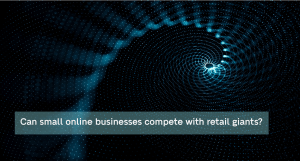The retail sector has transformed significantly in recent years, with an increased focus on sustainability. Among the trends that have seen a boom in 2023 we find re-commerce (or reverse-commerce), which involves the purchase and sale of used or refurbished items. More and more consumers are becoming aware of the environmental impact of their purchases and are looking for sustainable shopping alternatives. In this article we will explore how re-commerce is shaping the ecommerce landscape.
What is re-commerce
Re-Commerce is the online purchase and resale of previously owned goods, usually at discounted prices. Now that Re-Commerce has become digital, it is gaining ground thanks to the numerous resources available, just think of the Vinted platform.
In short, Re-Commerce is a model that is based on the “6 Rs”:
Refill
Repair
Resale
Return
Rental
Redistribution
“Circular business models are attracting more and more people to Europe and around the world, with the aim of building long-term growth opportunities and addressing global challenges, such as climate change and pollution.”
Andrew Morlet, CEO, Ellen MacArthur Foundation
Circular economy and new opportunities for businesses
Visa, in collaboration with the Ellen MacArthur Foundation, has created a digital platform dedicated to re-commerce, with the aim of promoting a more sustainable e-commerce.
- By 2030, the transition to a circular economy in Europe will generate an economic opportunity of 900 billion euros.
- According to Visa, small and medium-sized businesses (SMBs) with re-commerce activities have seen an annual revenue growth of 22% over the past two years.
- A quarter of SMEs expect to invest 20% of their turnover in activities related to re-commerce.
- 69% of consumers are more likely to buy from companies that are involved in re-commerce.
- In 2022, in Italy alone, the sale of used or refurbished electronic devices led to a reduction of 4 million kg of CO2 emissions.
Young consumers favor accessibility and sustainability
Millennials and Gen Z favour eco-friendly products and affordable prices. This is a significant cultural change, which pushes and will push companies to reconsider their strategies and offers, aligning themselves with the values of these generations that are aware of the impact of consumerism and care for the well-being of the planet.
How eLogy supports your Re-Commerce
A key aspect of re-commerce is related to returns management. Managing reverse logistics efficiently, processing returns, classifying items and integrating products into inventory for resale is essential for creating a circular economy, thus minimising waste of resources and reducing the environmental impact of a business.
- Automated and simplified returns management
- Waste reduction related to returns
- Data analytics and tracking to reduce costs and improve returns lifecycle
- Quality control
- Multi Warehouse Management
Investing in re-commerce is proving to be an enormous opportunity for brands, in a world that is increasingly turning towards conscious consumption. Valuing used and reconditioned products and making a concrete switch to sustainability is an act of social responsibility that demonstrates strong commitment to environmental protection and the well-being of the community.




